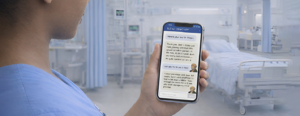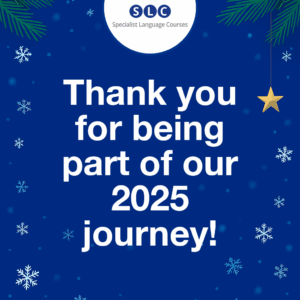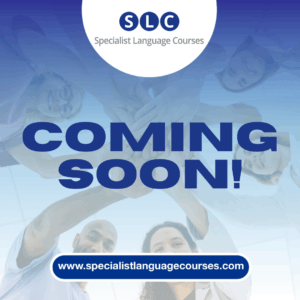
AI-Powered English for Care – Second Beta Test Now Open
Alongside the continued development of our course portfolio, Specialist Language Courses is advancing its AI-Powered English for Care project — an innovative learning tool designed

What is the UK Foundation Programme?
The UK Foundation Programme is a two-year, structured, work-based training programme which is designed to bridge the gap between medical school and specialty or general practice training.
It gives newly qualified doctors essential clinical and professional skills, ensuring they can deliver safe and effective patient care across various healthcare settings.
There are two years in the programme.
Throughout both years, trainees rotate through various specialties, including general medicine, surgery, and general practice, to gain broad clinical experience. The curriculum emphasizes not only clinical skills but also communication, teamwork, and patient safety.
An alternative is the one-year F2 programme for doctors who have completed F1 or equivalent training elsewhere. It focuses on the competencies required for progression to specialty training.
IMGs can apply to join either of the above two programmes. The eligibility criteria include having a primary medical qualification approved by the GMC and obtaining provisional GMC registration, which may require passing both PLAB tests.
There are also strict English language criteria. IMGs can use either OET or IELTS to demonstrate their English is at a high enough level to join the Foundation programme.
These are higher scores than those required for GMC registration – IELTS 7.0 and OET 350.
Achieving these scores is tough. Not only do you need an advanced level of English across the four skills, you also need to understand the assessment criteria – especially for the Speaking and Writing papers – and the strategies to use when tackling the different questions.
In our experience, many IMGs have excellent levels of English but fall down when it comes to the actual exam as they are not clear on how they are being graded. They may also struggle with long texts and tricky questions which contain distractors – options which look like they may be correct but are, in fact, not. Others find the timings difficult – time can really fly when sitting in a test centre.
In these situations, we really see the value of working with a specialist OET or IELTS teacher. They provide targeted coaching which improves a candidate’s scores in the papers they struggle most with. Expert input and feedback enable candidates to enter the exam centre with confidence and gives them a much better chance of achieving the high grades required.
Reach OET B Medicine and Reach IELTS Premium courses give expert input and test practice alongside one-to-one coaching with a specialist tutor. You can start with just 5 hours and then extend if you need, though you’ll be surprised at just how much you can achieve in that time.
Lessons are scheduled around your availability and are super-flexible. And before you start, you complete a detailed Needs Analysis so you can hit the ground running from the very start of your course.
Sign up today and prepare for success. And if you have any questions on how the courses will work for you, get in touch.

Alongside the continued development of our course portfolio, Specialist Language Courses is advancing its AI-Powered English for Care project — an innovative learning tool designed

As 2025 comes to a close, we’ve been reflecting on what has truly been an inspiring and rewarding year for Specialist Language Courses. It has

We are proud to announce the development of a new OET preparation course for all Professions, designed for healthcare professionals preparing for OET in: Dentistry,
Get updates and get the latest materials on Medical English, OET and IELTS
